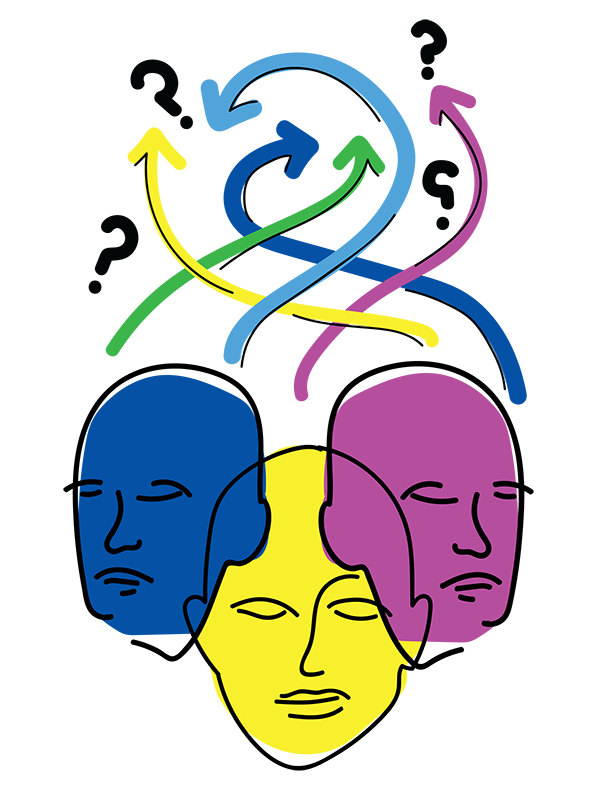“What would you do if I sang out of tune, would you stand up and walk out on me?” Joe Cocker’s words echo in my brain like a metronome to Pavlov’s dog. What would you do if your friend was struggling through something you can’t comprehend? Something like suicide, self-harm, vengeful thoughts, anger. Those are just four of a near infinite amount of different effects associated with mental health. You may know someone with mental health issues, and it is even possible that you have helped those who do. I envy you. I can barely take care of myself some days, let alone other people.
Myself, I have anxiety; severe anxiety in fact. I have Asperger’s syndrome which makes it difficult, if not impossible, to maintain social relationships of any kind. Sometimes I miss class because of it. I also suffer from occasional vertigo. I live in fear of the stigma attached to mental illness that we have probably all heard of. “Oh, they’re psycho, they’re a nerd, geek, bedwetter, FREAK!” The reality is that we are humans. We may hear voices or we may just not want to talk to you, but the point is, we are human beings. Deal with it.
In 1982, Pierre Trudeau helped create the Canadian Charter of Rights and Freedoms. For those who might not know what that is, it’s basically the list of rights, laws, and entitlements we have as Canadian citizens. The word “everyone” shows up a lot in it, which I take to mean encompassing everyone in Canada: Like me. Nowhere in the Charter does it indicate that people who are mentally ill in any form should be disadvantaged or mistreated — in fact, it even says: “Every individual is equal before and under the law and has the right to the equal protection and equal benefit of the law without discrimination and, in particular, without discrimination based on race, national or ethnic origin, colour, religion, sex, age or mental or physical disability.”
The legalities surrounding mental health are not my issue. My issue is with the gray area most people have surrounding those of us who deal with it daily in one form or another. Like someone who is visually impaired or a person who is deaf, if you ask them about their disability, more than likely they’ll make time to explain it. I know, I’ve met some lovely people at UFV who were visually impaired. Now, if you ask me about my disability, I’ll do the same. I don’t brag about it, but I am it, if that makes sense. I’ve been through periods in my life where I have spent a month or two incapacitated by my mental health issues. I literally could not leave the house, speak, act normally, participate in regular . . . you know . . . human stuff. Not anything.
I once accidentally took a picture of myself. I had walked into the MCC (Mennonite Central Committee) thrift store on Clearbrook and South Fraser. I was standing by the entrance when a picture caught my eye, so I took a photo of it. It was a picture frame with an inscription on the inside, something along the lines of, “You can’t judge a man until you walk in his shoes.” That part was typical, but what made it extraordinary is the realization I made a few years later. One day I looked at the picture and noticed my shoes were captured in the bottom of the image. This was completely accidental. Something was watching over me that day.
Knowing, even then, what I had been through in my life in regard to my mental health issues, I knew this would be my favourite picture of all time. What it says to me is that nobody, unless they’ve experienced the trauma and personal issues associated with mental health, can judge those who have. Simple.


